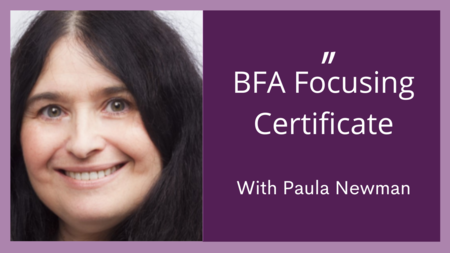Counselling Blogs
I hope you will find my blogs interesting and helpful.
They are based upon personal and professional experiences.

Ten Helpful Tips for Trainee Counsellors
I started my own training with little idea of what to expect. A few tips covering both the emotional and practical aspects would have been incredibly helpful. Drawing on my experience as a trainee, counsellor and supervisor, I have compiled some suggestions.
1. Take good care of yourself
Counselling training is often a powerful experience. It can be rewarding, intense, exhausting, exciting, emotional, deep, challenging, stressful and life changing. Attending to your own well-being is therefore essential.
Make time to pause, and to be aware of your needs. Pay attention to what nurtures, relaxes, and brings you peace, and what replenishes and energises you. With good self-care you are well equipped to meet the course demands and to be grounded and present as a counsellor.
2. Be prepared to experience the emotional effects of counselling training
Counselling training provides many opportunities for deep-self exploration and reflection. Discovering more about yourself can evoke a range of feelings and emotions.
Many people learn to give and to receive constructive feedback as part of their training. Whilst this can be a source of valuable learning, you might feel vulnerable both giving and receiving sensitive insights.
3. Be prepared for changes in your relationships
As you develop personally and professionally your perceptions, attitudes and interests can change. You may become more self-aware and self-accepting, more confident and self-sufficient. These changes can affect your relationships with family and friends.
4. Find a counsellor
Most but not all training courses require that you have counselling sessions. Whether or not personal counselling is stipulated I would recommend it for the following reasons:
Whilst training there are various situations where your own material can be triggered. Counselling can support you emotionally which is important for self-care as well as enabling you to be inwardly steady and solid whilst working with clients.
As a counsellor it is important to have sat in the client’s chair. To have experienced being in a therapeutic relationship from a client’s perspective, and to have worked at depth with your own issues.
5. Considerations when choosing a counsellor and supervisor
First, a brief explanation of supervision, which is a professional requirement for trainee and qualified counsellors in the UK. During sessions, client work is explored and discussed including any ethical issues that arise. There is also space for supervisees to attend to their personal and professional development.
Whilst the emphasis in personal counselling and clinical supervision differs, both are supportive relationships. I recommend arranging a meeting by phone, online or face to face with prospective counsellors and supervisors. It is open to see if this is a person with whom you can form a bond, and speak with openly.
There are practical matters to discuss such as their prices and availability. Do make sure that your counsellor and supervisor are approved by your college or university. This avoids forming a bond with a practitioner, only to discover that you must end the relationship and start again with somebody new. Many trainings have a list of approved counsellors and supervisors.
6. Find out about college or university assistance
There might be extra support available if you have special needs such as physical disabilities and learning differences. If you inform course directors and tutors of your needs from the start, there is more clarity about what is required and what is available.
7. Look into time commitments and financial costs. This will give you more options for planning ahead.
As you check fees and course dates look out for extras such as residential training.
Set aside adequate time for completing work that needs to be submitted. Be prepared for plenty of reading.
Having your own regular therapy is usually a course requirement that will add to your expenses.
Counselling practice is often at a placement that offers clients free or low-cost therapy. Most placement counsellors work voluntarily and are provided with free group supervision. You will probably also need to have individual supervision adding to your time and cost commitments.
8. Keep written records of everything
Receipts and payment records help if there are any administrative queries.
To avoid misunderstandings keep records of communications that relate to your course, for example time extensions for handing in assignments.
Keeping information about course details and areas of study can save you time in the future, for example when approaching placements and applying for jobs.
Keep records of time spent in personal counselling, your hours of voluntary counselling, and individual and group supervision. This information will be needed to complete your course, and probably later if you apply for Accreditation with a professional body. Many, but not all courses have forms and procedures for this.
9. Consider looking for a placement at the earliest opportunity
Counselling clients is likely to be a central part of your training. Once you have reached this stage in your training, and feel ready enough, I recommend applying to placements as there are a limited number of places available. Some trainings will not let you continue into the next year without a placement.
10. Invite fellow trainees to form a peer group
As you approach the end of your training it is a good idea to think about future supports. Courses include opportunities for learning, discussing, sharing and attending to personal and professional development. Following graduation, meeting fellow trainees regularly can be mutually helpful and supportive.
I am reminded of these words by Carl Rogers when I reflect upon my own experiences as a trainee:
If I am to facilitate the personal growth of others in relation to me, then I must grow, and while that is often painful it is also enriching.
Carl Rogers (1995) On Becoming a Person: A Therapist's View of Psychotherapy
Contact Paula
You are most welcome to get in touch if you are looking for a counsellor or supervisor. We can have a meeting online and discuss working together. I offer face to face supervision and counselling in Harrow / Stanmore and online if you prefer.
Lockdown Journal
March 12th 2020 ~ Driving home from Heathrow airport I sneeze into my coat sleeve. The cab driver is alarmed, he warns me that 'Each time you sneeze it’s like a mini bomb going off’. We have been visiting family in Florida and I am noticing a a higher level of tension and anxiety in the Uk.
Back home I soon realise that we only have one roll of toilet paper. Before going away I gave my son a shopping list and he has very kindly brought everything we need, except loo paper. His reason ‘I tried three shops and there wasn’t any’ seems rather unlikely. I go out in the evening and eventually find a large pack, it is the last one on the shelf.
The next few days
Countries all over the world are closing down. I am fascinated by the drama and the enormity of it all. The news is the only programme that interests me and the topic is always the same.
Working Online
We are now in lockdown and all my counselling and supervision work is online and by phone. A few clients decide to wait until we can be face to face again.
Some people ask for telephone sessions and sit in their car for privacy. A number of supervisees have fewer clients and want to meet less frequently. To begin with I am uncertain about the future of my practice. Then I have a few new enquiries and it feels more secure.
Certain clients and supervisees are more technologically able than I am. Sometimes I need their help and feel as if our roles have been reversed. I learn to allow for extra time at the end of sessions in case starting up or crashing during the middle has eaten into somebody’s time.
Since we can no longer be in the same physical space it is important to acknowledge how this feels and to mention any concerns. Although we are physically distanced I hope that we can still feel emotionally connected.
The shadow of coronavirus is constantly present. We explore its effects and the surreal feelings that many of us are experiencing. There is a sense for me of us all being in this together.
Reflections
I would like to find some meaning in all this, to understand in a spiritual way why is it happening, and why now? The Jewish concept of Tikkun Olam which is about repairing the world makes the most sense to me. At this extraordinary time people are being kind and helpful, some are showing great courage in their efforts to save lives.
On social media I see many posts about a better future in terms of the environment and new ways of living. There are poems, and videos with beautiful scenery and music. I realise that these posts are supposed to be uplifting, but they bring tears to my eyes because the cost in lives is so high.
The virus
These are the first known symptoms of Coronavirus: sore throat, fever, cough, breathing difficulties and fatigue. For some weeks I have had all of these symptoms apart from the fever. Then I hear that people can have the virus without the fever. As the number of deaths escalate, my cough gets worse. I feel as if there is an iron bar pressing down on my chest.
The virus is spreading, it travels through the air and rests on surfaces. Apparently, it can live on plastic for weeks. There are discussions about the pros and cons of wearing a mask and we are given handwashing demonstrations.
When a family member is rushed to hospital my anxiety rises. She returns home the next day and recovers fully. However, my anxiety stays high and the bar on my chest presses harder.
On April 2nd I hear about the death of a Rabbi, I met him once and was impressed by his kindness and sensitivity. His funeral is shown on the news. After that I stop watching the news, I dread hearing about more deaths.
I think I have the virus, or a chest infection or maybe anxiety is causing all these symptoms. One evening I pack a small bag in case I need to be taken to hospital during the night. Then I wake up in the morning feeling better. This happens several times.
Whilst talking online with a friend about my anxiety I become more fully aware of my grief. I am so grateful that none of our family or friends have died, and at the same time I am grieving for the thousands of people who are no longer with us.
My grief feels overwhelming and I am tempted to push it away. However, I know that distracting myself only helps for a little while. So I stay with the emotions in a Focusing way which is gentle and accepting. I notice what I am feeling, and put a soothing hand on my chest where it hurts. Gradually the physical symptoms subside.
Life under Lockdown
I check my street from the window, it looks deserted and therefore safe, so I venture out for my 'daily exercise'. A lady walks towards me from the opposite direction. The virus is very contageous and we must keep two metres apart. Our eyes meet. We both move to cross over the road. We stop and smile. I indicate that I will cross over. We wave and then continue walking on opposite sides of the street.
Each day I walk up the street or down the street, enjoying the sunshine and the flowers.
My son is outside in his car. I leave my granddaughter’s birthday presents on the step and close the front door. From a window I watch my son collect the presents, he places boxes of my favourite coffee pods on the step. I am longing for a hug. When he is safely back in the car, I open the front door. My granddaughter is shouting from the car ‘I love you’, I call back that I love her too. They drive away and I am heart-broken to see them go.
My four-year-old granddaughter in Florida calls me on Hangouts. We agree that every day is the same and give each other tours of our homes. We discuss the time difference and send each other stickers and photos. I treasure this time together, normally she would have been in school.
WhatsApp is ringing, I swipe, and there they all are, my son, daughter-in-law and little granddaughter with her beaming smile. We sing nursery rhymes and look at books.
There are many opportunities for learning online. To begin with I cannot think about starting something new. The future feels too uncertain and I am living day by day, I concentrate upon the safety of my family, and connecting with clients. I talk with family and friends and feel that we are supporting each other. That is enough.
Eventually I feel more safe and recognize that we can take care of ouselves by living in this strange bubble of physical isolation. I choose an online course and join some workshops. Attending to my professional development is grounding and gives me a sense of hope.
Thursday evenings at 8pm ~ It starts with a gentle tinkling that becomes a clinking and then an enormous clanking with fireworks whistling and banging and bursting into coloured lights. Sometimes we join in, knocking on our pots and pans, waving at neighbours and saying thank you to our wonderful NHS.
Post Covid reflections
Prior to Covid my counselling practice included a combination of face to face and online work to suit people's preferences. This made the transition to working solely online a little easier. However, there were issues with unstable connections, often resolved by clients and supervisees with more technological knowledgeable than me . This introduced an interesting dynamic to our therapeutic relationships.
We were living in 'unprecidented' times and this was reflected in the counselling material, including anxiety, uncertainty, boredom, loneliness, missing the company of family and friends and also missing personal space and alone time. Lockdown was especially dangerous for people living in abusive situations.
I also worked with people who welcomed lockdown. They were able to relax without the pressures of socialising and struggling to fit in at work, college and school.
Gradually, life returned back to 'normal', and people marvelled at being with other human beings in real time and space.
Contact Paula
You are most welcome to get in touch if you are looking for a counsellor or supervisor. I offer online and face to face supervision and counselling in Harrow / Stanmore.



